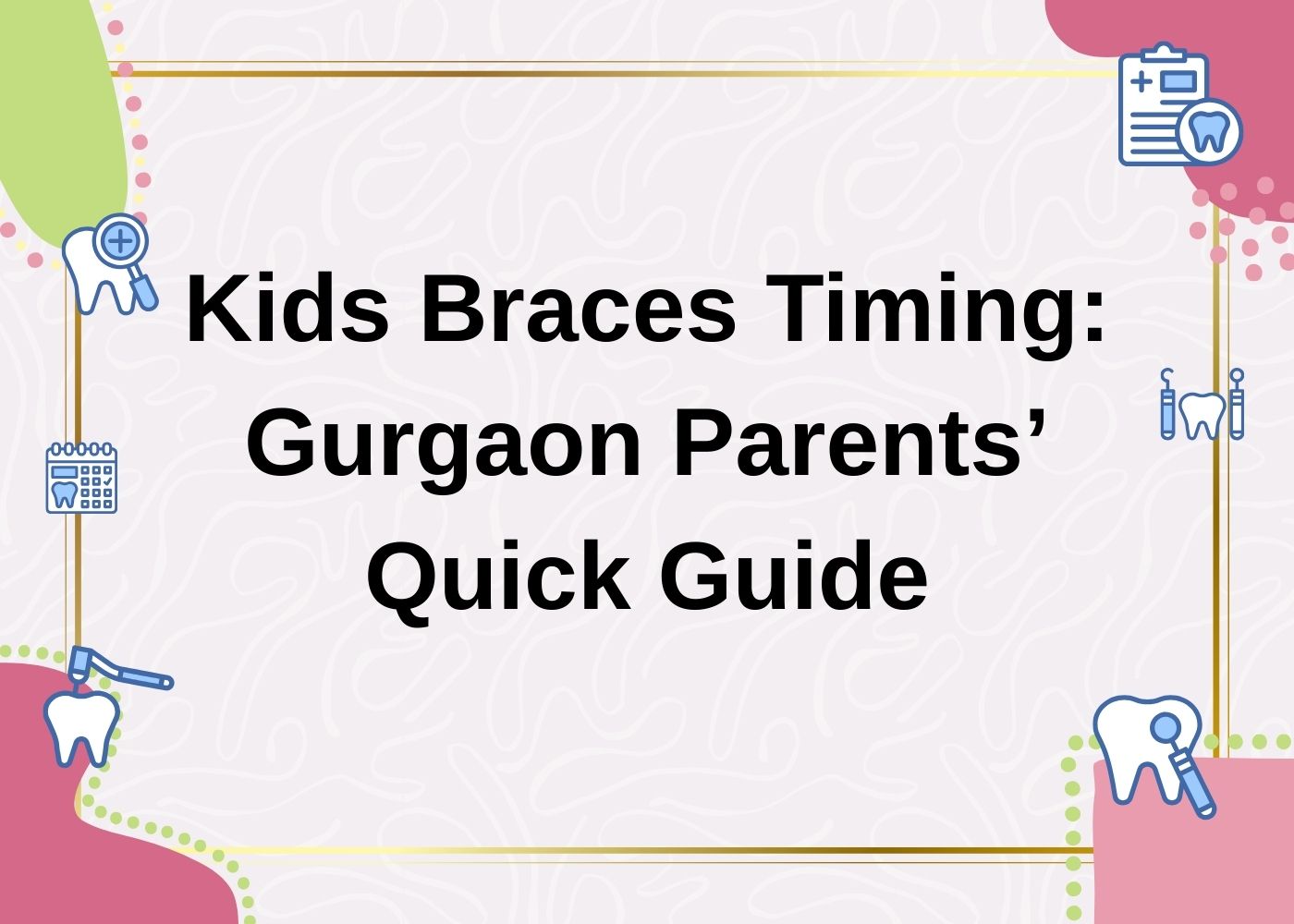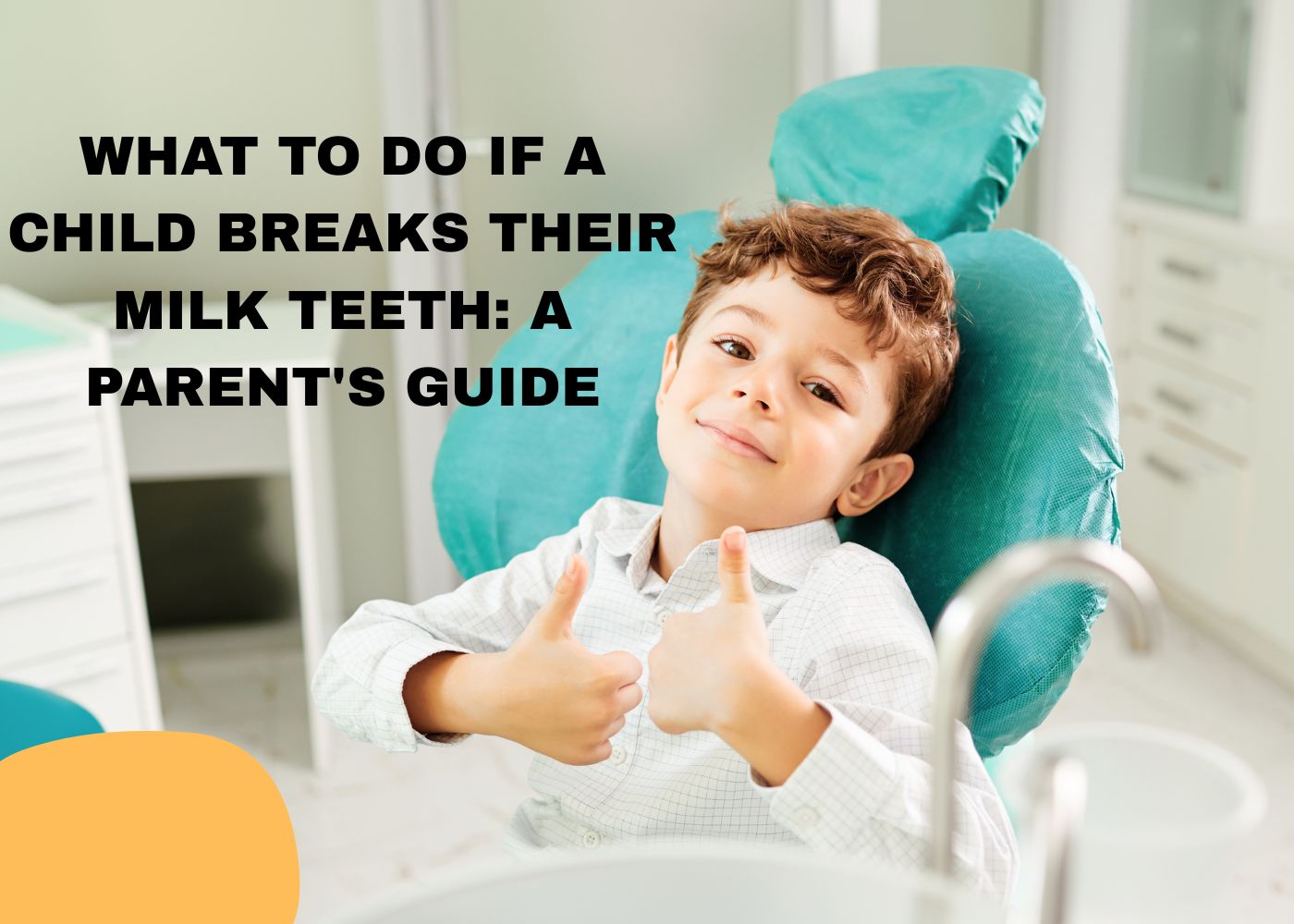

Knowing what to do if a child gets hurt and broke his milk teeth is crucial for every parent. A broken milk tooth demands a timely response to minimize pain, prevent infection, and avoid complications affecting the development of permanent teeth.
Child dental injury often happens during common activities like:
Immediate care followed by expert evaluation is essential. Seeking professional help from a pediatric dentist ensures proper assessment and treatment tailored for young children’s unique dental needs. If you live in Gurgaon, selecting the best pediatric dental care provider can make a significant difference in your child’s recovery.
This guide covers critical areas including:
Prepare yourself with practical knowledge to handle child dental injuries confidently.
Milk teeth, also known as baby teeth, are the first set of teeth a child develops. These teeth play a crucial role in oral development by:
The significance of milk teeth extends beyond their temporary presence. Protecting these teeth matters because damage or premature loss can lead to several issues:
Injuries to milk teeth not only cause immediate pain but can also impact the health of underlying permanent teeth. Trauma may disrupt the formation or eruption path of adult teeth, leading to complications such as discoloration, malformation, or delayed eruption.
Pediatric dentistry importance becomes clear when addressing these concerns early. A pediatric dentist specializes in managing injuries to milk teeth with techniques tailored for children’s unique dental anatomy and growth patterns. Timely professional care helps preserve the integrity of both baby and permanent teeth, ensuring healthy oral development through childhood.
Childhood dental trauma is a frequent concern for parents, especially during the early years when children are highly active and curious. Understanding the common causes of tooth injury helps you better protect your child’s oral health.
Typical scenarios leading to broken or chipped baby teeth include:
These incidents are quite common among active children. According to pediatric dental studies, a significant percentage of kids experience some form of dental trauma before age seven due to their natural tendency to explore and move energetically.
Injuries do not involve just the teeth. Other mouth tissues affected by such trauma include:
Recognizing these causes and tissue involvement prepares you to respond effectively when your child suffers a mouth injury. Knowing why these injuries happen also highlights the importance of preventive measures during daily activities.
Knowing the right first aid broken tooth child steps can reduce discomfort and prevent further complications. Start by carefully assessing the injury:
Next, rinse the mouth gently with warm water to clean debris and reduce bacteria. Avoid using harsh mouthwashes or vigorous rinsing that could worsen bleeding.
If bleeding persists, apply a piece of cold, wet gauze directly over the injured area. Maintain gentle pressure for 10–15 minutes to help stop the bleeding. Use ice packs externally on the cheek to reduce swelling if needed.
For pain relief, opt for age-appropriate doses of paracetamol or ibuprofen. These provide effective comfort without numbing the area excessively. Avoid teething gels after an injury since they do not address trauma-related pain and may irritate damaged tissues.
Encourage your child to stay hydrated by drinking fluids, especially if chewing causes discomfort. Stick to cool or lukewarm drinks and avoid acidic or sugary beverages that might irritate wounds.
Do not attempt to reinsert any broken pieces of a milk tooth into its socket. Baby teeth are fragile, and reinsertion can cause infection or damage underlying permanent teeth.
Understanding these initial dental care steps helps you manage tooth injury at home calmly and prepares you for seeking professional advice when necessary.
It’s important to schedule a pediatric dentist consultation right away if your child’s milk teeth are broken or chipped. Even small fractures can cause infection or impact the growth of permanent teeth if they aren’t treated.
Signs That Indicate a Visit to the Dentist
Look out for these clear signs to visit dentist:
These situations require immediate emergency dental care child services. The pediatric dentist will examine the damage and may take X-rays to assess the situation. Based on their findings, they will determine the appropriate treatment such as smoothing sharp edges, stabilizing teeth, or managing infection risk.
Getting professional evaluation promptly helps minimize complications and promotes healthy oral development during this crucial stage of childhood.
Severe dental trauma in a child requires distinct approaches depending on whether the injured tooth is a milk tooth or a permanent one. Knocked-out tooth management differs significantly:
Immediate action can save the tooth. Find the tooth, hold it by the crown (avoid touching the root), rinse gently if dirty, and store it in milk or saline solution. Reimplantation may be attempted before reaching emergency dental care.
Do not attempt reimplantation. These teeth are temporary and reinserting them can damage the developing permanent teeth underneath.
If a milk tooth is lost early due to injury, the healing process involves natural gum tissue repair. The permanent tooth will eventually erupt in place of the lost baby tooth, but regular monitoring by a pediatric dentist is essential to ensure proper alignment and development.
Pediatric emergency dentistry focuses on minimizing pain, preventing infection, and guiding healing for both mild and severe injuries in young patients.
Certain emergency symptoms after tooth injury in children signal the need for immediate medical attention. Knowing these signs helps you act swiftly when faced with a dental injury complication in your child.
Watch carefully for:
Knowing what to do if a child gets hurt and broke his milk teeth includes recognizing when these serious symptoms occur. Immediate care by emergency services and consultation with a pediatric dentist are crucial to managing these dangerous complications effectively.
Protecting your child’s teeth from trauma starts with proactive steps during everyday activities and sports. Preventing dental trauma in kids requires a combination of the right equipment and vigilant supervision.
Mouthguards for Children
Mouthguards for children serve as the first line of defense during contact sports such as football, basketball, and hockey. These devices cushion blows that might otherwise chip or break milk teeth. Custom-fitted mouthguards made by a dentist provide superior comfort and protection compared to generic store-bought versions. Encourage your child to wear their mouthguard consistently during practice and games to minimize risk.
Protective Gear for Kids Sports
Protective gear for kids sports extends beyond mouthguards. Helmets designed specifically for biking, skateboarding, rollerblading, and similar activities help protect not only the head but also reduce the chance of facial injuries that can affect teeth. Look for helmets meeting safety standards with proper fit adjustments to ensure optimal coverage.
Additional Tips
Additional tips include:
Taking these measures helps reduce the likelihood of broken or chipped milk teeth and soft tissue injuries. This preventive approach complements timely professional care when accidents do occur, keeping your child’s smile healthier through childhood.
Finding the best pediatric dentist in Gurgaon requires attention to specific qualities, especially when dealing with childhood dental trauma. You want a dentist who combines expertise in pediatric oral health with a gentle approach that helps children feel comfortable and safe. Look for:
Among the top-rated Dental Clinics in Gurgaon, PolyMedica Dental and Medical Centre stands out. This clinic has earned strong reviews for its comprehensive care and advanced facilities. The PolyMedica Dental and Medical Centre review frequently highlights their patient-centric approach and skilled staff.
Dr Swati Pandey, a renowned dentist in Gurgaon, brings significant experience specifically in pediatric dentistry. She is recognized as one of the Best Dentist in Gurgaon for children’s dental trauma cases. Her expertise covers preventive care, emergency treatments, and restorative procedures tailored for young patients.
Choosing a clinic like PolyMedica, where Dr Swati Pandey practices, ensures your child receives expert evaluation and treatment that prioritizes both dental health and emotional comfort. This level of care is essential when managing delicate injuries such as broken milk teeth.
Knowing what to do if a child gets hurt and broke his milk teeth empowers you to act swiftly and confidently. Keep essential first aid steps in mind, maintain preventive habits like using mouthguards, and stay alert for signs that indicate when to seek a paediatric dentist. Trusting experienced professionals such as Dr Swati Pandey ensures your child receives expert care tailored to their unique needs. Preparedness and prompt action protect your child’s smile and support healthy oral development. Your vigilance today shapes their dental health tomorrow.
WhatsApp us